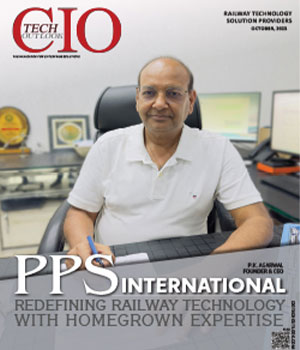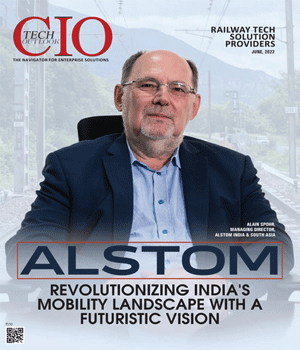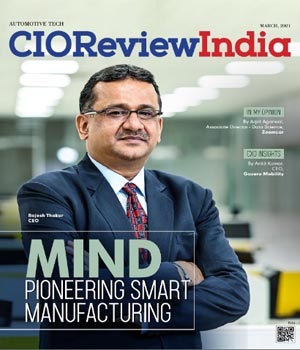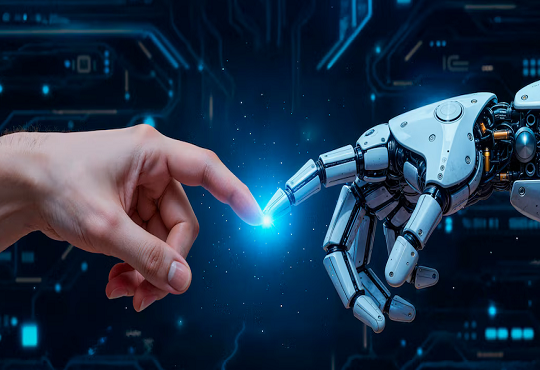
HD Hyundai Taps AI edge for Marine Tech Through New Partnership
CIOTech Outlook Team | Wednesday, 21 May 2025, 13:06 IST

- The alliance will be centered on producing eco-friendly engine simulation tools, applying advanced AI to make the engines more efficient.
- HD Hyundai partnered with Finnish firms NAPA and CADMATIC in January 2024 to accelerate shipbuilding’s digital transformation.
- Digital transformation is gaining momentum in maritime industries to enhance work.
Altair, an American company in Product Lifecycle Management software and part of Siemens Digital Industries Software, has agreed to a strategic memorandum of understanding (MoU) with HD Hyundai’s Engine Research Institute to advance ideas in Marine engine technology. The partnership’s goal is to make the design process more efficient and bring new environmentally sustainable technologies to market faster. The alliance will be centered on producing eco-friendly engine simulation tools, applying advanced AI to make the engines more efficient, enabling preventive maintenance and diagnosis and using AI-based technology to make engines safer.
Sungchan An, Vice President and Head of the HD Hyundai Engine Research Institute, noted that this relationship is an important continuation of the current partnership. “With Altair now part of Siemens, the development of next-generation engine design technologies such as virtual product development and AI-based engine simulation is expected to further accelerate,” An said. This follows Altair’s prior work with HD Hyundai on simulation technologies for HiMSEN engine designs, marking a new chapter in their collaboration.
Digital transformation is gaining momentum in maritime industries to enhance work, cut down on harmful emissions and keep up with the rising importance of data worldwide. Thanks to requirements from bodies such as the European Union and the International Maritime Organization, as well as shifts in trade and pressure for greater sustainability, vessel owners and port operators are choosing technologies including monitoring, automatic loading and unloading and AI for efficient routes. With these tools, businesses can reduce expenses, keep employees safe and satisfy rules for the environment.
Also Read: Google and Elementl Power Team Up for Nuclear Projects to Power AI
Updating specific areas of digital technology helps solve problems like how much fuel the vehicles need and the amount of downtime for equipment. In August 2024, MSC Cruises, using OptiCruise, launched a tool to improve itineraries by looking at ports, timings and vessel speed, predicting a drop of 15% in its Greenhouse gas emissions by 2026. Likewise, Singapore and Rotterdam’s ports, two huge global centers, launched a green and digital shipping corridor in 2022, inviting 28 partners to incorporate new eco-friendly and advanced solutions in their shipping activities.
In a related development, HD Hyundai partnered with Finnish firms NAPA and CADMATIC in January 2024 to accelerate shipbuilding’s digital transformation. Their collaboration focuses on integrating 3D models and advanced information management to streamline vessel construction through a product lifecycle management system, further advancing maritime innovation.
CIO Viewpoint
Why Foolproof Facial Recognition Is Key Against...
By Joseph Sudheer Thumma, Global CEO & MD, Magellanic Cloud
National Technology Day 2025: Powering Progress...
By CIOTech Outlook Team
Aligning IT Roadmap with Business Objectives: A...
By Subhash singh Punjabi, CISO & Head Enterprise Architecture, Deepak Fertilisers & Petrochemicals Corporation Ltd
CXO Insights
Tech Landscape of In-Cabin Experiences and...
By Sanjay Saha, India Country Manager, Synaptics
3 Focus Areas For An Autonomous Driving Revolution
By Varun Chhabra, Vice President, Product Marketing Cloud, Dell Technologies
The Electrified Car Industry Must Reimagine its...





.jpg)
.jpg)
.jpg)





